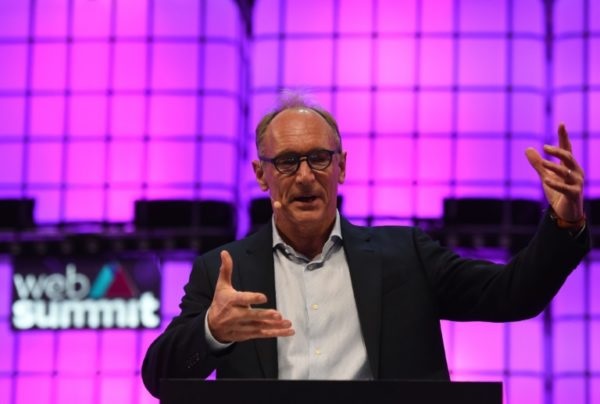
Tim Berners-Lee, the British computer scientist who invented the internet in 1989 is about to launch another invention: an open source web platform that will allow users bypass tech giants such as Google and Facebook.
He has just launched Inrupt, a start-up which is building the open source platform called “Solid”.
The platform, in his conception, will decentralise the web and allow users to choose where their data is kept, along with who can see and access it.
Solid intends to allow users to bypass Google and Facebook. The two tech giants now have direct influence over nearly three quarters of all internet traffic thanks to the vast amounts of apps and services they own such as YouTube, WhatsApp and Instagram.
Berners-Lee spoke in Lisbon Monday at a web summit and lamented the widespread abuse many users have turned the internet.
Berners-Lee, who in 1989 invented the World Wide Web as a way to exchange information, said the internet had deviated from the goals its founders had envisaged.
“All kinds of things have gone wrong. We have fake news, we have problems with privacy, we have people being profiled and manipulated,” he said in an opening address.
Employees of Google, Facebook and other tech giants have in recent months gone public with their regrets, calling the products they helped build harmful to society and overly addictive.
Tech giants are also under fire for having built up virtual monopolies in their areas.
Amazon accounts for 93 percent of all e-book sales while Google swallows up 92 percent of all European internet-search ad spending.
Berners-Lee, 63, has advocated a new deal, a “contract” to make internet safe and accessible for everyone.
He called on governments, companies and citizens to iron out a “complete contract” for the web that will make the internet “safe and accessible” for all by May 2019, the date by which 50 percent of the world will be online for the first time.
He is leading the way with ‘Solid’.
“I think technology is going through a funk… it’s a period of reflection,” Web Summit founder and CEO Paddy Cosgrave told AFP.
“With every new technology you go through these cycles. The initial excitement of the printed press was replaced in time by a great fear that it was actually a bad thing. Over time it has actually worked out OK.”












